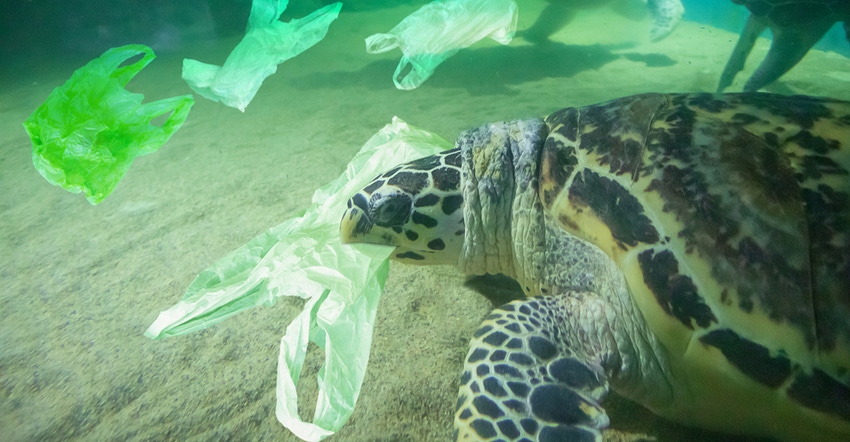The Need For Pragmatic Environmentalism (Commentary)
February 12, 2021

Bob Powell
I’ve been thinking a great deal lately about circles.
For companies like mine that are relentlessly focused on creating sustainable solutions, the idea of achieving truly circular economic solutions (systems that eliminate waste and reuse our resources) is incredibly motivating.
The need for circularity has become particularly acute when it comes to plastics and the need to reimagine waste. The statistics remain frightening: despite the development of mechanical recycling over the last few decades, less than 10% of the plastics we’ve produced have ever been recycled. There is simply no hiding from the fact that plastics pollution has become a serious environmental hazard. And with the production of new plastics expected to triple by 2050, some have estimated that by that point there will be more plastics than living animals in our oceans.
This simply can’t continue. If there’s good news to be found here, it can be this: unlike other issues that often live at the intersection between business and environmentalism, there is near universal agreement that the production of plastics products at this pace, coupled with ineffective recycling solutions, is untenable. Even among plastics producers, nearly all parties agree that finding a solution to plastics waste is urgent.
But agreement on the existence of the problem has not been enough. Straight lines have been drawn that often keep us from working together to embrace progress. It reminds me, in a way, of the stalemate that exists in our politics. Our politicians often look for purity in their opinions, the better to stoke a passionate electorate but making debate, compromise and productive action nearly impossible.
When it comes to plastics, we often find ourselves in a similar divide. Plastics producers may be loath to take risks that threaten to sink their profit margins, and environmentalists often dismiss solutions as half-steps that don’t reduce production levels or lead to carbon-negative results. Inevitably, that tension leads to inactivity as constituencies dig into their own interests.
Which brings me back to circles. You may think in this case that a circle represents failure, an idiot “spinning in circles” where the journey leaves us dizzy and back to where we started.
To me, a circle is just the opposite. In drawing a circle, the point moves around a radius…a commonality that guides the process and informs the entire shape. It’s perfect. But to get there requires logic. No matter how disparate the elements around it may be, the radius from the center is still equal at all points. A true circle contains nothing approaching a straight line. It can only be achieved by working to round the direction, taking in external stimulus to ensure the goal is ultimately reached. And it combines two perfect halves, facing each other in opposition yet combining to form an absolute whole.
When it comes to finding circularity in plastics production, we need to think about that circle. What is the logic we need to make sure we find the solutions necessary to tackle the problem?
The circle itself is pragmatic, and the answer to the plastics problem lives within a real-world pragmatism as well. Regardless of the idealism and predispositions brought to the debate, a pragmatic commitment to closing that circle, to combining disparate outlooks, to keep moving along the solution’s diameter is the only way to make real progress.
In this case, what does pragmatism look like? On all sides, it requires an acceptance of truths to move beyond orthodoxy and help find real-world solutions.
For producers, it means fully embracing the need to develop and support innovative technology solutions that can recycle ALL plastics materials, and to understand that the costs of those investments may ultimately help save the industry, not set it back.
For environmentalists, it means an acknowledgement that plastics are a part of the world’s current landscape, and that it’s OK to accept recycling concepts that aren’t entirely about eliminating plastics consumption altogether. It also means accepting that we need to partner with big energy and chemical companies in order to truly scale circularity – and that it is a positive thing when these companies are investing and participating in closed loop solutions.
The goals of circularity, to reuse nearly all that we create, is achievable. But we’ve got to think about what that circle really looks like. To me, that circle is what brings two halves together, not what divides them. And we’re so close to making that perfect circle work, if we can just find the will and the pragmatism to let it reach its closing point.
Bob Powell is the Founder and Chief Executive Officer of San Francisco-based Brightmark, a global waste solutions provider with a mission to reimagine waste.
You May Also Like


